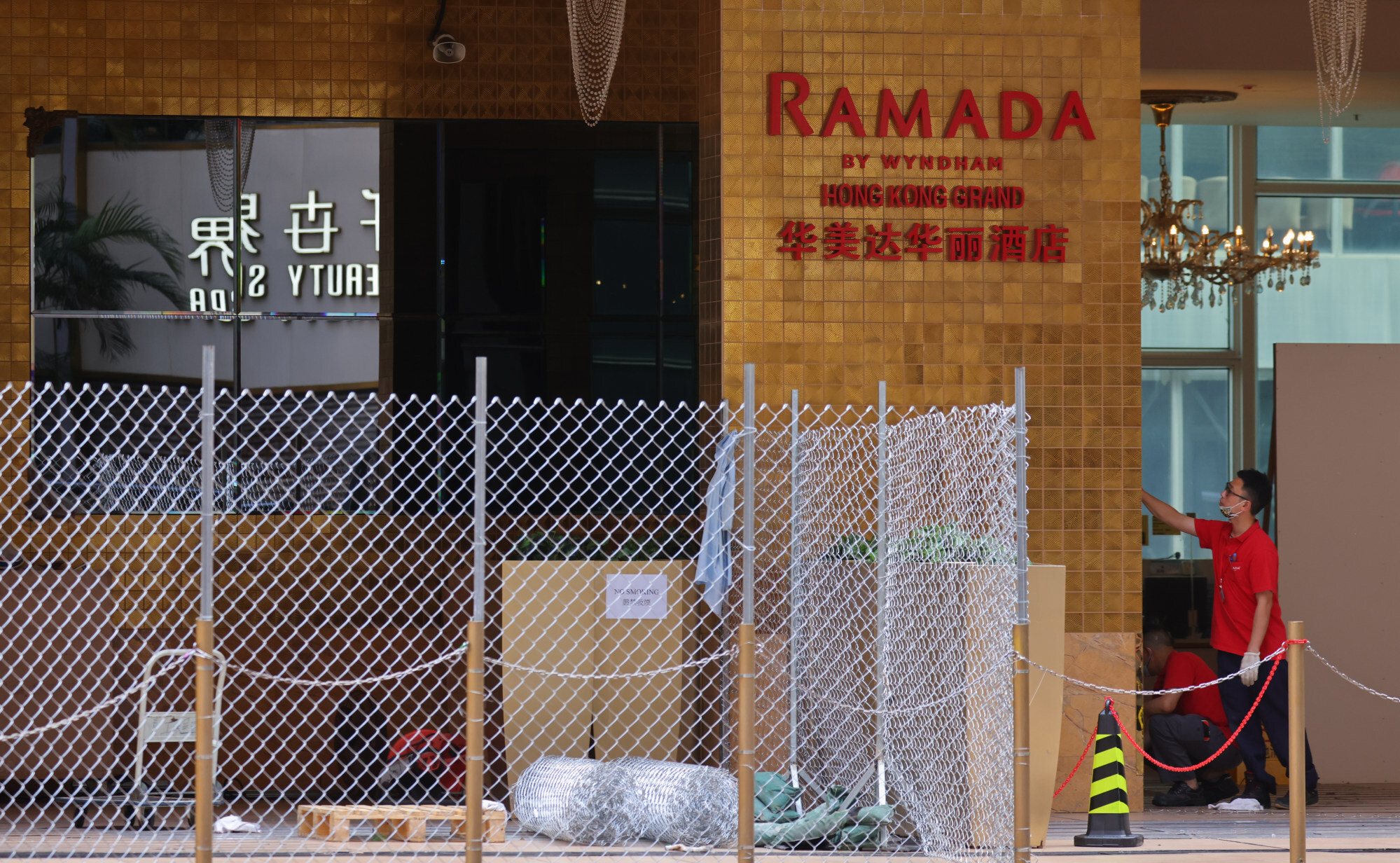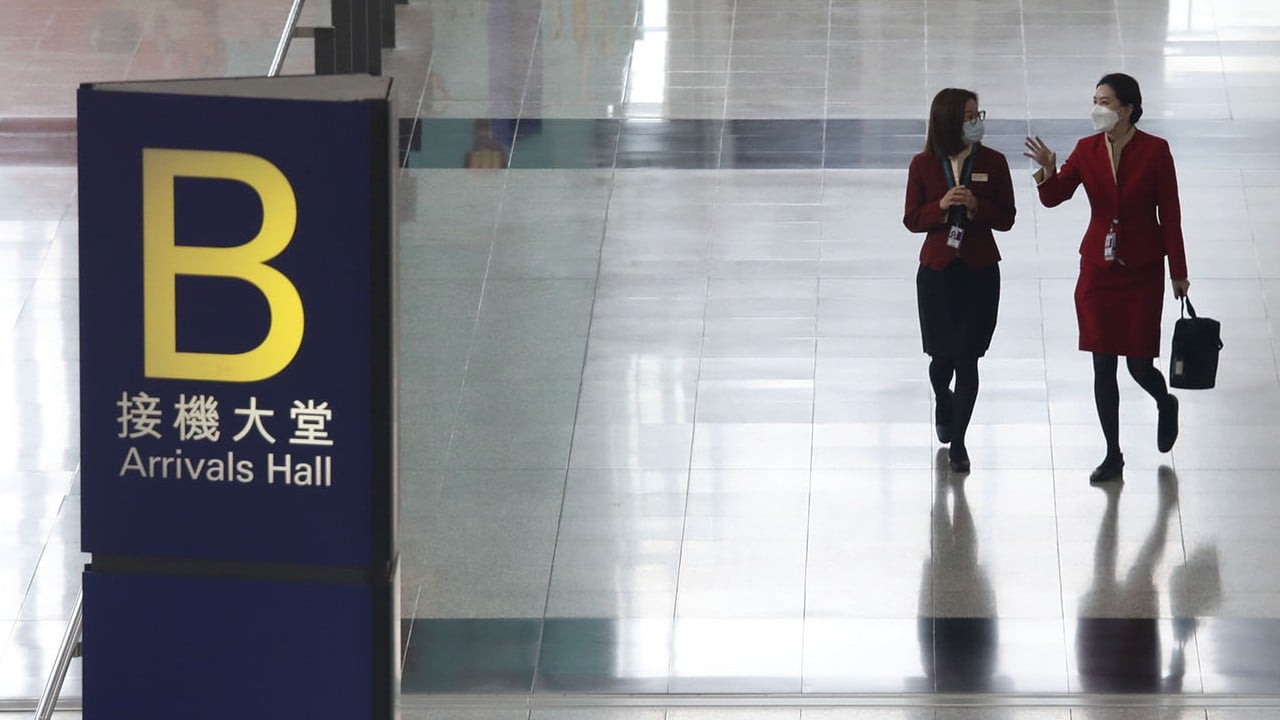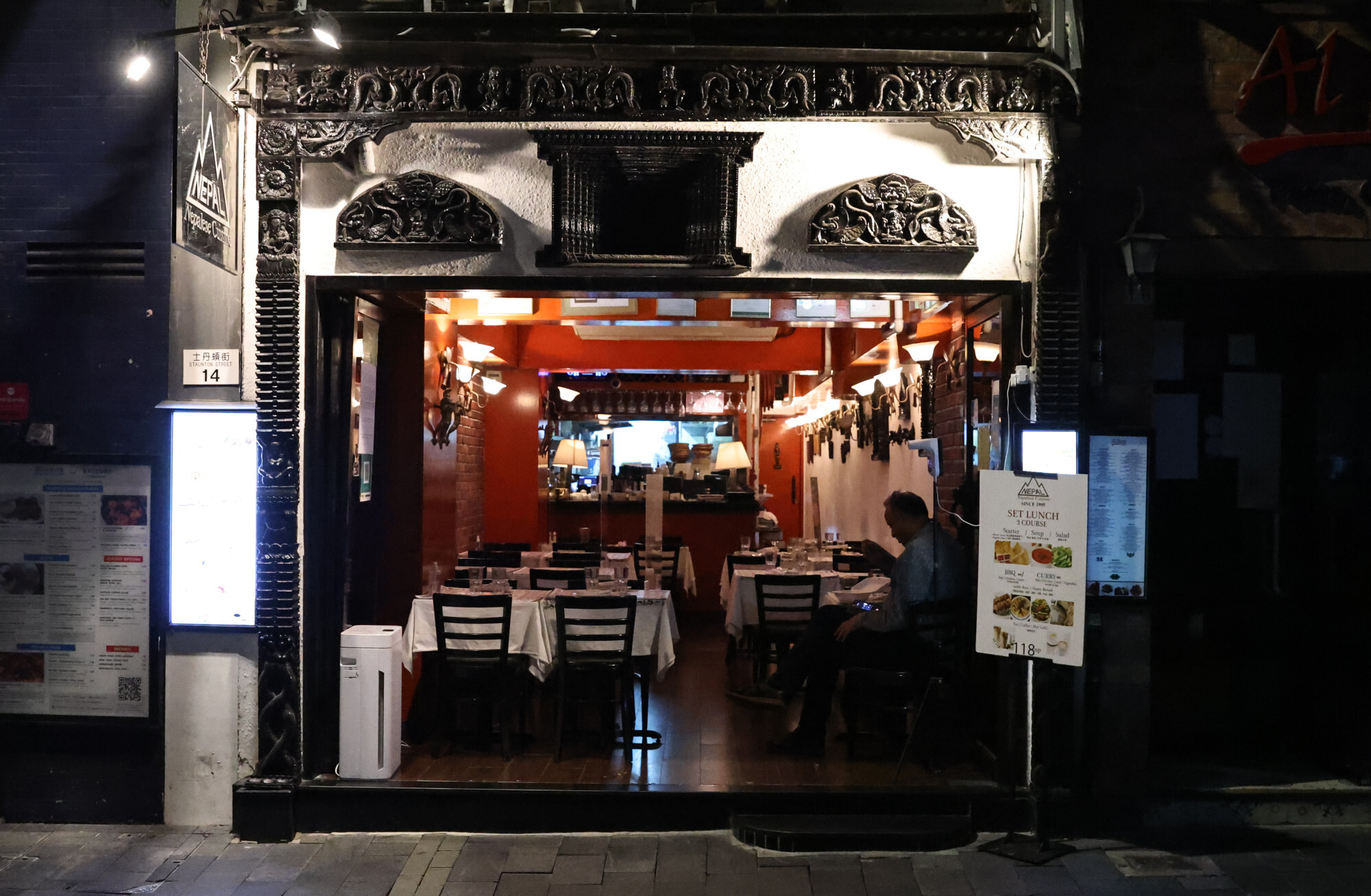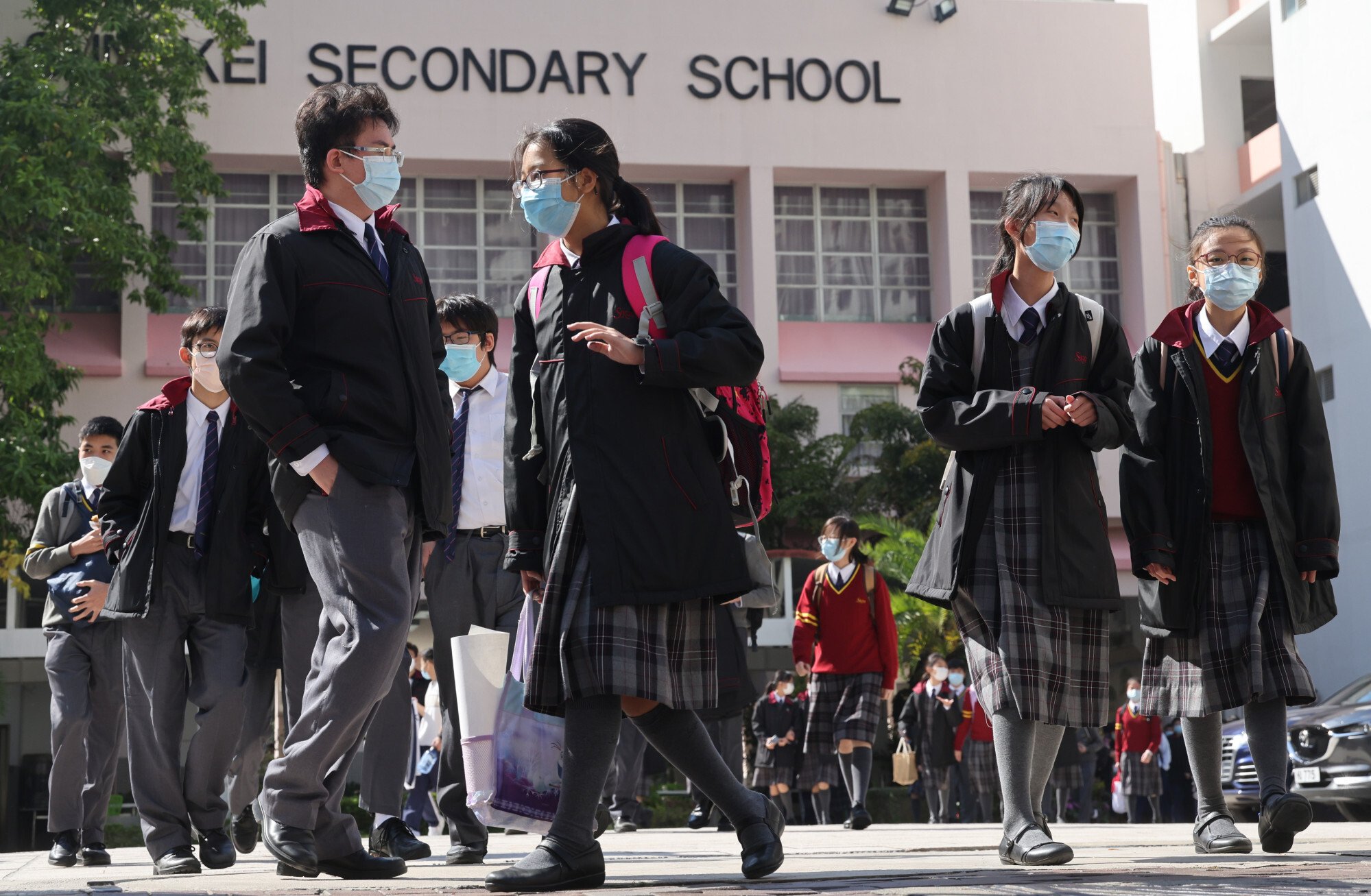Travellers who are not residents cannot enter Hong Kong, except for those arriving from mainland China, Macau and Taiwan.
A ban on flights from nine countries – Australia, Canada, France, India, Nepal, Pakistan, the Philippines, Britain and the United States – will be scrapped from April 1.
Returning Hong Kong residents will have to fulfil a few conditions, including being fully vaccinated, testing negative for the coronavirus no more than 48 hours before boarding and having a valid booking for seven nights at a quarantine hotel.
Travellers should check if their flight has been prohibited to land for one week for bringing in too many passengers who tested positive for Covid-19 on arrival and breaching requirements specified under the Prevention and Control of Disease (Regulation of Cross-boundary Conveyances and Travellers) Regulation.

How long will I need to quarantine?
The quarantine period for Hong Kong residents returning from overseas will be shortened from 14 days to just seven if they return a negative PCR test result on the fifth day of their stay, and negative rapid test results on the sixth and seventh. They will also need to undergo medical surveillance for seven days – but need not stay at home – and take a PCR test at a community testing centre on the 12th day of their arrival.
They can also choose to remain in quarantine longer than seven days and take a PCR test on the 12th day of their stay.
Those who are medically exempted from vaccination or from further jabs are allowed to return but must quarantine for 14 days.
What if I test positive during quarantine?
You will be issued an isolation order and sent to a community isolation hotel. You can leave isolation after as little as a week if you test negative on the sixth and seventh days after your infection is first identified.
Can my children travel with me if they are not vaccinated?
Children under the age of 12 – even if they are unvaccinated – can board flights to Hong Kong if they are accompanied by a fully inoculated Hong Kong resident with recognised vaccination records.
They also need proof of a negative PCR test done no more than 48 hours before departure and have a valid booking for seven nights at a quarantine hotel.
Children must undergo compulsory quarantine with the accompanying adult and can leave early if they return a negative PCR test result on the fifth day of their stay, as well as negative rapid test results on the sixth and seventh days. Like adults, children will also need to undergo medical surveillance for seven days after checking out of the quarantine hotel, and take a PCR test at a community testing centre on the 12th day from their arrival.
Children can also return with an accompanying adult who is medically exempted from vaccination, but they will also need to undergo 14 days of quarantine.

03:30
Covid-19: Hong Kong to open schools, lift flight ban, cut quarantine time and suspend mass testing
Covid-19: Hong Kong to open schools, lift flight ban, cut quarantine time and suspend mass testing
Social-distancing rules
On what conditions will the social-distancing rules be relaxed?
Chief Executive Carrie Lam Cheng Yuet-ngor said the measures would be eased in three phases within three months starting from April 21, provided the number of infections did not rebound and continued to show a downward trend. Authorities have not specified dates for the second and third phases.
Measures such as the use of the “Leave Home Safe” risk-exposure app, “vaccine pass” restrictions for entering various premises, and wearing of masks will remain in place.
When will the evening dine-in ban be lifted?
In the first phase, which will begin from April 21, dine-in services will be permitted in restaurants until 10pm with up to four diners per table. Currently, eateries can only offer dine-in services until 6pm with a maximum of two customers per table.
In the second phase, dine-in hours will be extended to midnight with up to eight people per table.
All restrictions on capacity and opening hours will be removed in the third phase.

Will bars and pubs reopen?
Bars and pubs will be allowed to open until 12am or 2am with up to four customers per table in the second phase, but no date has been given yet. All caps will be lifted in the third phase.
What about other venues?
In the first phase, game centres, gyms, beauty salons, massage parlours, sports venues and religious places will be allowed to reopen, with groups of no more than four people. Masks should be worn at all times except in situations such as eating at restaurants and receiving facial treatment.
Museums, performing venues, libraries and sports sites managed by the Leisure and Cultural Services Department will also open.
In the second phase, all other types of premises under public health control regulations can resume operation, including swimming pools, bathhouses, party rooms, nightclubs, karaoke lounges, mahjong-tin kau premises and cruise ships.
The cap on groups in restaurants and most other establishments will be raised to eight people. The 42 public beaches will also reopen. Masks will not be required during workouts at sports venues and gyms.
In the third phase, requirements for masks and gatherings will remain the same.
Can I meet my family and friends from different households?
The cap on two-household gatherings in private places will be lifted in phase one.
The ban on group gatherings of more than two people will be eased to four in public places.
Can I exercise outdoors without a mask on?
The mask rule on outdoor exercise in country parks or other public spaces will only be lifted in the second phase.

Schools
When will face-to-face classes resume?
In-person classes at kindergartens, primary and international schools are expected to resume on April 19 at the earliest.
Secondary schools will resume in-person classes after the Diploma of Secondary Education exams, which will kick off on April 22. City leader Lam said the Education Bureau had come up with contingency plans for postponing the exam if needed.
Do children have to be vaccinated to go to school?
Unvaccinated students can still go to school and are exempt from the vaccine pass scheme. Lam said better conditions would be provided for in-person learning and extracurricular activities if there was a high inoculation rate among students.


















